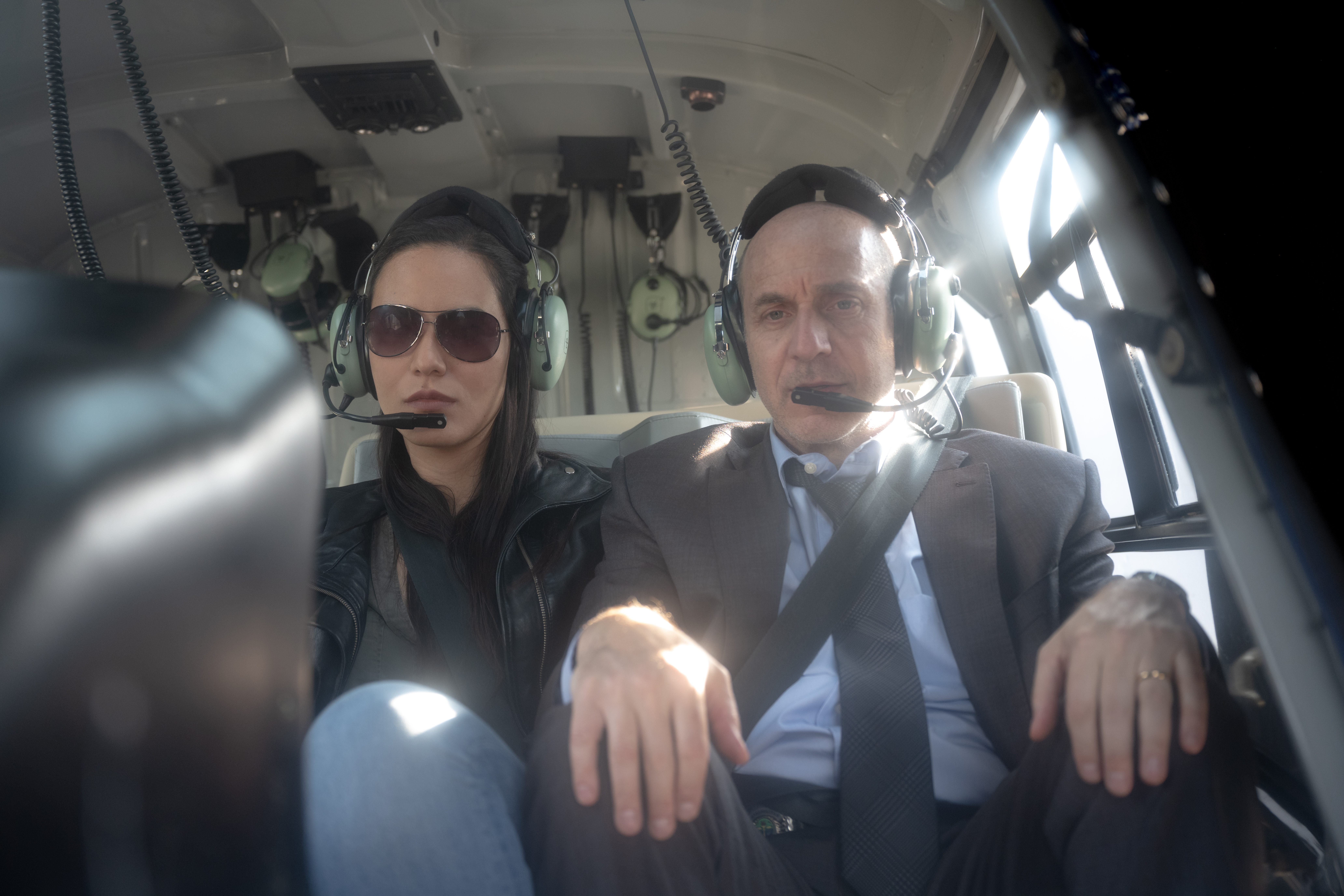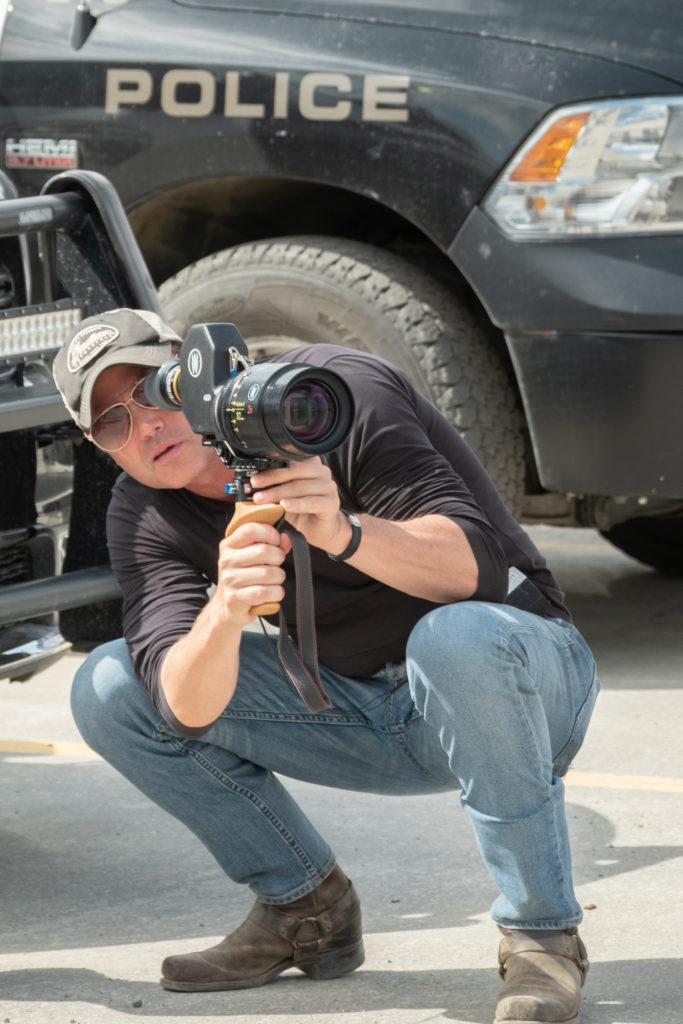Eric Volmers // Calgary herald

Partway through the first season of the new Calgary-shot police series, Tribal, an investigation leads the show’s two mismatched protagonists into the tragic world of missing Indigenous people.
It was perhaps an inevitable topic for the series to tackle. Tribal, which debuts on the Aboriginal Peoples Television Network on Feb. 20, mixes a police procedural with Indigenous storytelling, offering a traditional crime-of-the-week structure but setting it in a larger context of social issues that impact modern First Nations people. Alberta-based creator Ron E. Scott is best-known as the formidable force behind Blackstone, a harrowing drama that took an unflinching, five-season look at racism, corruption, addiction and abuse on a fictional reserve in Alberta. So it’s hardly surprising that Tribal would dive into some similarly topical waters designed to touch a national nerve.

The episode about missing Indigenous people was certainly emotional for lead actress Jessica Matten, who portrays the tough, if slightly green, head of the Tribal Police Force, Samantha Woodburn. Matten’s mother, Therese Ducharme, is a Metis activist who worked for the Native Women’s Association of Canada and was part of the Sisters in Spirit team that worked with the families of missing and murdered aboriginal women.
“A part of me signing onto the show was that I knew Ron would touch on relevant issues that are happening in not just Canada but all of North America,” says Matten. “Because my family is so intricately tied to all of those topics, on the acting side it’s that much more fulfilling to play when it means something and coming from the heart. For that episode, in particular, there were definitely some triggering moments for me because it’s real. That’s the scariest thing: Everything we are talking about in Tribal is real. So inevitably, the scenes, the issues, the conversations that we have are going to hit home. I hope, because they hit home, that the audience picks up on that, too, and understands us a little bit better.”

Still, Scott says he set out to make a very different show than his previous series. He wanted it to be more accessible and less confrontational. As such, Tribal certainly flirts with a number of familiar cop-show tropes. For one, Matten’s young and attractive Sam Woodburn is teamed up with a detective named Chuck (Buke) Bukansky, a damaged and possibly racist veteran of the Metro police force played with grizzled-cop weariness by Brian Markinson. His partnership with Woodburn, who is officially his boss, is part of a showy political move by the Federal Justice Department after it takes control of the Tribal Police Force governing four reservations that surround a large city. As tends to be the case in cop shows, the partners do not get along in the early days. She thinks he’s racist. He thinks she’s a token appointee meant to put a pretty face on a police force that has been accused of corruption. He’s a cynical big-city cop with a troubled past who resents his new role; she is forced to deal with the red-tape and old-white-boy machismo of the Metro Police Force. While areas of downtown Calgary are certainly recognizable — the eight-week summer shoot also took place in parts of Tsuu T’ina First Nation — it all unfolds in an unnamed city and on rural reserves that offer plenty of fish-out-of-water drama for both characters.
Still, while some of this may seem recognizable on paper, what may separate Tribal most is what it doesn’t do with its depiction of modern Indigenous life. Matten, whose first major role was on Scott’s Blackstone before moving onto the historical drama Frontier and legal drama Burden of Truth, said what most attracted her to the role of Woodburn was the cliches it avoided.
“I’m very grateful and feel very fortunate that I’m in a position in the TV and film industry where I get to turn down roles,” says the Edmonton-born Matten, whose family history can be traced back to the first Metis leader of Canada, Cuthbert Grant. “The roles that I end up turning down are for reasons that, if it’s an Indigenous character, they are just portraying them in a way or manner that I feel is stereotypical. I strongly believe that if they are going to use my culture for entertainment, I want to make sure I’m not perpetuating any stereotypes.”
So early conversations with Scott about the role tended to focus on who Woodburn wasn’t rather than who she was.
“He said’ She’s not going to come from a bad family with issues, she’s not going to have any alcoholic issues herself,” Matten says. “He’s like: ‘I just want to flip the script completely.’ The reality is, while growing up, as much as I have seen a lot of poverty and a lot of heartbreak within our communities, I’ve equally been surrounded by some of the most successful people in all of North America. I’m talking bankers, lawyers, doctors. I’m very grateful that I have the opportunity to showcase the type of native woman that actually exists in the world.”
Throughout the eight episodes, the two will investigate crimes loosely based on real events. Episodes about missing women, pipeline protests, tobacco and healing-lodge justice will have a certain ripped-from-the-headlines vibe.
But it’s also a character-based series. While each episode is self-contained, there is also a season-long evolution for these characters and particularly in the relationship between the two leads.
“On the page, some of the stuff that comes out of this guy’s mouth is hateful (or) bordering on that,” says TV veteran Markinson about his character. “But I really feel like you can advocate for somebody who has a story and there’s a reason why we’re seeing a guy at this point in his life. For me — without apologizing for who this guy is — the chance of redemption was always there and that appealed to me. Which is kind of what this series is. It’s an interesting prism. Three-quarters through this season, to watch this guy look at a screen that is filled with missing, Indigenous people and see how he is shifted is really fascinating and invaluable. Because if this guy can make that shift, then can’t we all?”
It’s a combination of elements that should give the show plenty of places to go for the future and APTN has already ordered a second season. Ultimately, Scott says the show is meant to be entertaining, even if it does revisit some of the deeper themes of power, cultural divide and corruption of his previous series.
“Writing for me is observation and reflection,” Scott says. “At any level of government, there’s going to be, if not corruption, then definitely contradiction. The way the government has handled and traditionally managed their relationship with Indigenous people of Canada is very interesting to me. I think that there is quite a level of futility and contradiction through the years and it hasn’t changed. It’s just found a way into manifesting differently. Over the years, from the first time of colonization, there’s always been a disconnect. Even though there’s been massive strides made, I still think there is a long way to go.”
Tribal debuts Feb. 20 on APTN.